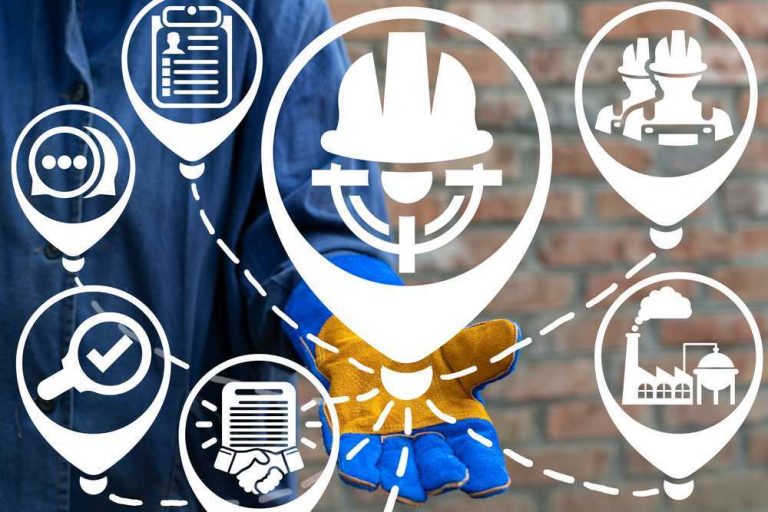What are soft skills for recruiters? And why should you care about having them when AI is on the rise?
While AI tools like InterviewHQ can automate and enhance many aspects of the recruitment process, the human touch remains irreplaceable. To thrive in this evolving landscape, recruiters must cultivate unique soft skills that complement and leverage AI capabilities.
Soft skills are personal attributes, traits, and behaviors that enable individuals to interact effectively and harmoniously.
Unlike specific hard skills, teachable abilities, or knowledge sets (such as coding or data analysis), soft skills are more about how you work and interact with others.
Here are six essential soft skills recruiters will need in the age of AI.
6 Must-Have Soft Skills for Recruiters
1. Emotional Intelligence (EQ)
Understanding and Managing Emotions
Emotional intelligence, often abbreviated as EQ, is the ability to understand and manage your emotions, as well as recognize and influence the emotions of others.
In a world where AI handles many technical and repetitive tasks, the human aspects of recruiting become even more critical. EQ allows you to connect on a deeper level with candidates, understanding their motivations, fears, and aspirations.
Building Relationships
Building strong relationships is at the heart of effective recruiting. Recruiters with high EQ can create trust and rapport with candidates, making them feel valued and understood. This is particularly important at a time when candidates are often dealing with automated responses and algorithm-driven interactions. Your ability to provide a human touch can set your company apart and attract top talent.
Conflict Resolution
In the recruitment process, misunderstandings and conflicts can arise. Whether it’s negotiating job offers or addressing concerns about company culture, recruiters with strong EQ are better equipped to navigate these situations. They can empathize with candidates’ perspectives and find solutions that satisfy both the employer and the candidate, ensuring a smooth and positive hiring experience.
2. Adaptability
Embracing Change
The recruitment industry is no stranger to change, and the introduction of AI is one of the most significant shifts to date. You must be adaptable, and ready to embrace new technologies and methodologies. Stay current with AI advancements and understand how they can be integrated into the recruitment process.
Continuous Learning
Adaptability also means being committed to continuous learning. New tools and techniques emerge regularly. Be proactive in seeking training and educational opportunities to stay ahead of the curve. This might include online courses, workshops, and industry conferences on AI and recruitment.
Flexibility in Approach
AI can streamline many aspects of recruiting, but it also requires a flexible approach. You need to be open to adjusting your strategies based on insights provided by AI tools. For example, if AI analysis indicates that certain job postings are more effective on specific platforms, be willing to shift your efforts accordingly.
3. Communication Skills
Clear and Effective Communication
With the rise of AI, clear and effective communication becomes even more crucial. You must be able to convey information accurately, whether you’re interacting with candidates, hiring managers, or AI systems. This involves verbal and written communication, as much of the recruitment process occurs through emails and digital platforms.
Active Listening
Active listening is a key component of effective communication. You need to listen carefully to candidates’ needs and concerns. This skill ensures that you can make informed decisions.
Cross-Functional Communication
AI tools often involve collaboration with other departments, such as IT and data science. You need to be able to communicate effectively across these functions, translating technical jargon into actionable insights and ensuring that AI implementations align with recruitment goals.
4. Critical Thinking
Analyzing AI Outputs
AI systems can generate a wealth of data and insights, but it’s up to human recruiters to interpret and act on this information. Critical thinking allows you to analyze AI outputs critically, distinguishing between useful insights and irrelevant data. This skill ensures that AI enhances decision-making rather than overwhelming you with information.
Problem-Solving
Recruiters frequently encounter complex problems that require creative solutions. AI can provide valuable data, but humans must apply this information effectively. Critical thinking enables you to devise innovative solutions to challenges, such as identifying the best candidates for hard-to-fill positions or improving the candidate experience.
Ethical Considerations
As AI becomes more integrated into the recruitment process, ethical considerations become increasingly important. You must think critically about the implications of AI use, such as potential biases in algorithms and the impact on candidate privacy. This involves asking tough questions and making decisions that align with ethical standards and organizational values.
5. Cultural Competence
Understanding Diversity and Inclusion
Cultural competence refers to the ability to understand, appreciate, and interact with people from diverse cultures and backgrounds. In recruitment, this means recognizing the value of diversity and inclusion and striving to create a hiring process that reflects these principles. AI tools can help identify diverse talent pools, but it takes a culturally competent recruiter to engage with these candidates effectively.
Avoiding Bias
AI systems can inadvertently perpetuate biases present in the data they are trained on. Recruiters with cultural competence can recognize and counteract these biases, ensuring a fair and equitable hiring process. This might involve adjusting AI algorithms or supplementing AI insights with human judgment to ensure diverse candidates are given equal consideration.
Global Recruitment
In an increasingly globalized world, recruiters often find themselves working with candidates from various cultural backgrounds. Cultural competence allows recruiters to navigate these interactions smoothly, respecting cultural differences and adapting their approach to meet the needs of international candidates.
6. Human-Centered Design Thinking
Focusing on the Candidate Experience
Human-centered design thinking is a problem-solving approach that starts with understanding the needs and experiences of the people involved. In recruitment, this means prioritizing the candidate’s experience. AI can streamline many aspects of the hiring process, but it can also create a sense of detachment if not implemented thoughtfully. Recruiters need to ensure that technology enhances rather than detracts from the human aspect of hiring.
Iterative Improvement
Design thinking involves continuous iteration and improvement. Recruiters should regularly seek feedback from candidates and hiring managers to identify areas for improvement in the recruitment process. This iterative approach ensures that the process evolves in a way that meets the needs of all stakeholders.
Collaboration and Innovation
Human-centered design thinking fosters a collaborative and innovative mindset. Recruiters can work with AI developers, hiring managers, and other stakeholders to design recruitment processes that are efficient, fair, and engaging. This collaboration ensures that AI tools are used to their fullest potential, creating a seamless and positive experience for all involved.
Final Thoughts
AI will continue to change how recruitment is done and as a recruiter, you must evolve with this change. While AI can handle many technical and repetitive tasks, the human touch remains irreplaceable.
By cultivating soft skills such as emotional intelligence, adaptability, communication, and other skills we’ve shared in this article, you can enhance your effectiveness as a recruiter. The most successful recruiters will be those who can seamlessly integrate AI capabilities with their unique human skills.
So now you’ve learned the soft skills required to stay ahead as a recruiter in the rise of AI. But what AI tool do you begin with? With InterviewHQ, you screen candidates and conduct multiple interviews simultaneously. This helps you reduce the time and cost it would normally take to hire a new employee. Sign up and get a 30-day free trial today.




